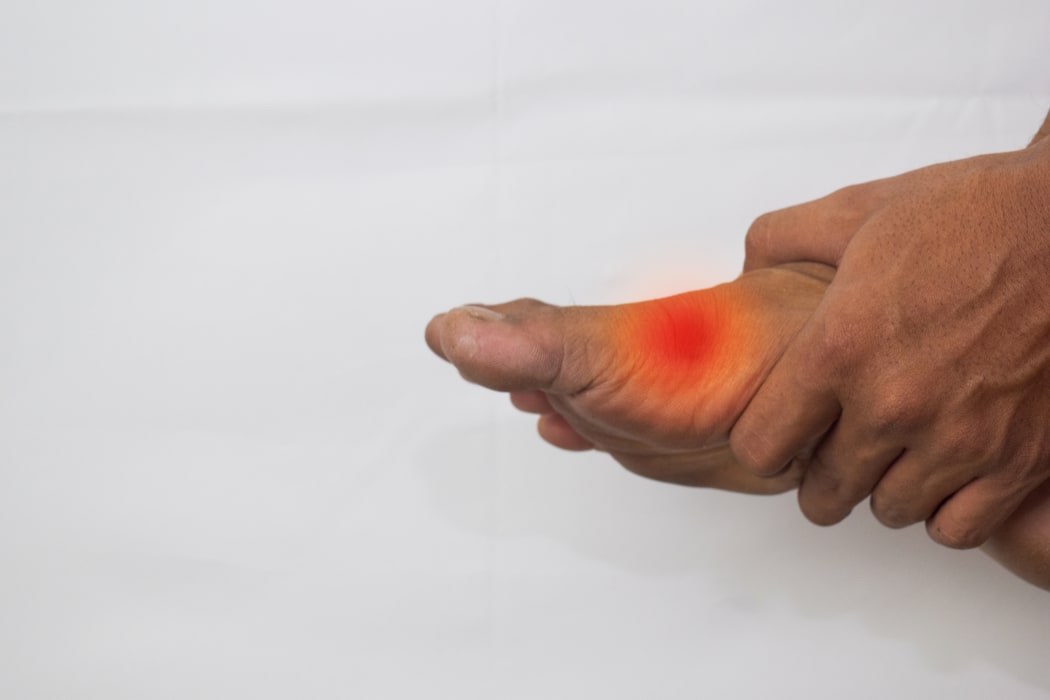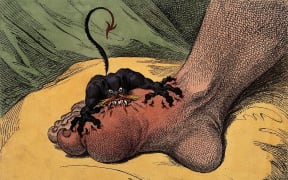A Pharmac report estimates 10,400 more Māori should be on preventive treatment for gout each year to achieve equity in access of these medicines.

Gout causes attacks of pain and swelling, usually in the joint of the big toe. (File image) Photo: 123RF
Gout is a kind of arthritis that causes attacks of pain and swelling due to a high level of uric acid in the blood. But this can be managed by taking medicines like allopurinol and probenecid daily.
Pharmac chief medical officer David Hughes said the research suggested more Māori need to start taking preventive gout medicine at a younger age to achieve better health outcomes.
"Making this happen will take all parts of the medicines system to understand the extent of the access equity issues and what they can do to address it," Hughes said.
Pharmac chief Māori adviser Trevor Simpson said the insights were concerning but not surprising.
"There are systemic and societal influences that we all need to address to achieve equitable outcomes. While research like this supports our goal for Māori to achieve their best health and wellbeing, we know we can't achieve this alone," Simpson said.
"We are using the data and insights and working with our partners across the health and disability sector to see real changes from policy to primary healthcare. We're also examining our own processes for improving access to funded medicines," he said.
"We will routinely and transparently report on Māori access to medicines and our own role in working to address equity gaps."
Gout is estimated to affect about 6 percent of adult New Zealanders aged 20 years and over, with males and Māori disproportionately affected.
Māori are about two times more likely to live with gout compared to non Māori, non-Pacific peoples.
The research shows that Māori are 6.9 times more likely to be hospitalised with gout compared with non-Māori, non-Pacific peoples.
Māori are also less likely to receive preventive medicine before or after hospital admission.
Biological factors such as kidney disease and genetic variants mean Māori are also susceptible to experience severe gout, early-onset gout, and other complications.
The Royal New Zealand College of General Practitioners medical director Bryan Betty said it was important to raise awareness on equitable access to medication.
"This report both raises awareness and highlights the equity issues around clinical management of gout in New Zealand, which differentially affects Māori and Pasifika," Betty said.
Pharmac's report is the first of a series investigating inequities in medicine access, with one dedicated to gout insights on Pacific peoples expected to be released soon.





